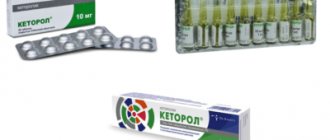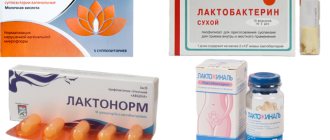Should you drink carbonated drinks while pregnant?
As you know, carbonated drinks, in addition to ordinary water, contain many impurities: dyes, flavor enhancers, sweeteners and, of course, sugar.
These supplements do not bring much benefit to the average person, and they can even harm a pregnant woman. Carbon dioxide - those very “bubbles” - entering the stomach, burst its internal cavity, thereby preventing it from doing its job and contracting normally.
Some of the bubbles return up the esophagus, causing belching. If the expectant mother suffers from heartburn, then she will experience burning pain.
Another part of the bubbles moves into the intestines, causing bloating and disrupting peristalsis. This in turn can cause bowel problems such as constipation or diarrhea.
Sweet carbonated drinks are also harmful to health due to the content of aspartame, a substance that is a sugar substitute that is 200 times sweeter than it. Drinking such drinks harms the liver, which can cause obesity and contribute to the development of diabetes.
Carbonated drinks have a negative effect on the kidneys and gallbladder. The phosphoric acid contained in drinks, which is responsible for regulating acidity, increases the likelihood of the formation of kidney or gallstones in people predisposed to urolithiasis or cholelithiasis.
And, as you know, pregnant women have an increased load on their kidneys, so you can’t drink carbonated drinks during this period.
Phosphoric acid, also contained in soda, affects the stomach, exacerbating gastritis, and also impairs the absorption of beneficial microelements such as potassium, magnesium and iron.
In addition, dyes, preservatives, flavor enhancers and other additives often cause allergic reactions that can be transmitted from the mother to the baby.
The well-known sodium benzonate (E211) reacts with acid in the stomach, which causes the formation of harmful carcinogens that cause cancer.
The opinion of dentists on the use of carbonated drinks is categorical. They believe that such drinks negatively affect tooth enamel, destroying it and causing caries. And since pregnant women already suffer from calcium deficiency, they definitely don’t need an extra problem in the form of tooth decay.
Which one should not be consumed by pregnant women?
Mineral water comes in several categories:
- dining room – its mineralization is 1 g/l;
- medical dining room – up to 8 g/l;
- medicinal – 10 g/l.
High levels of minerals can harm pregnant women and the fetus. Therefore, only table water is allowed for consumption.
Coca Cola
The drink is prohibited during pregnancy for the following reasons:
- it contains caffeine, which can disrupt the proper development of the child’s nervous system;
- it contains active dyes of chemical origin;
- it has a negative effect on the gastric mucosa, sometimes simply corroding it, and the expectant mother’s digestive system is especially vulnerable.
In addition, the drink has many low-quality fakes. They contain too high an acid content.
IMPORTANT! But even a branded drink made under the supervision of a real manufacturer is not safe. After all, the recipe for cola has not been fully disclosed, and it is unknown what components are in it.
By the way, for the same reason, children should not get carried away with cola. It provokes serious gastrointestinal diseases.
Energetik
Fans of this drink justify themselves by the fact that it does not contain alcohol. But this does not make the energy drink useful. This happens for the following reasons:
- it's full of caffeine;
- it has a stimulating effect on the nervous system;
- Cases of sharply negative effects on the heart have been reported.
And in general, a pregnant woman has no need to recharge her energy. During this period, her best state is calm.
Pepsi
This drink is less active than Coca-Cola and is considered quite mild. But it is also harmful for pregnant women. Indeed, in addition to caffeine content, it also has other properties:
- it contains a high content of aspartame;
- Pepsi actively loads the liver;
- The drink has a high acid content.
There is no need to risk your child's health. Prepare yourself a delicious and healthy jelly from berries, sweeten it with honey - you will get an excellent substitute for harmful sweet sodas.
How to replace store-bought pops?
How can you replace store-bought carbonated drinks if you really want to treat yourself during pregnancy?
Homemade lemonade, made with your own hands, comes to the aid of expectant mothers. It's not difficult to prepare. For one serving of lemonade you will need:
- one lemon;
- one glass of clean water, still;
- sugar to taste.
The lemon should be cut into two parts, squeeze out the juice, dilute it with water and add sugar. To obtain a less concentrated drink, add more water.
You can drink this drink no more than two glasses a day, and it is advisable to drink it through a straw so as not to harm tooth enamel.
Is it allowed?
Pregnant women often experience constipation or diarrhea.
This is due to changes in hormonal levels and fluid redistribution.
If the intestines are additionally affected by carbon dioxide, the condition worsens.
Pain may develop and intensify as the fetus grows. If a woman constantly drinks sweet soda, in addition to the effect on the digestive tract, other disorders occur.
- Sugar, aspartame. Its amount is so high that it can cause hyperglycemia in a pregnant woman. If a woman is prone to diabetes during pregnancy, the condition worsens. The disease can also occur in the fetus. If carbohydrates are constantly entering the body in large quantities, the mother and child become obese.
- Phosphoric acid. This is a substance that increases acidity. It leads to relapses or worsening of urolithiasis.
- Sodium benzoate. A preservative that has a toxic effect on internal organs. Especially the liver, kidneys, and digestive tract. With constant use it causes tumors.
Mineral water for heartburn: which mineral water is better to drink
Causes of heartburn
An unchangeable rule: you can drink mineral water only with the approval of the doctor who is monitoring you. Concomitant diseases may be a contraindication for drinking this drink:
- Cardiovascular pathologies (with circulatory disorders);
- Jades;
- Diseases of the gastrointestinal tract during exacerbation (nausea, vomiting, diarrhea);
- Bleeding of any origin;
- Postoperative period;
- Individual intolerance.
In rare cases, side effects occur: hand tremors, insomnia, irritability, headaches and stomach pains.
Effect of carbon dioxide
Drinking carbonated water negatively affects the body . But its effect on the woman and the fetus is different. It depends on the quality and quantity of the product consumed and the state of the body.
On the mother
The effect of carbonated water on a woman is greater - the function of the gastrointestinal tract is disrupted.
Formed:
This is due to the fact that the fetus additionally compresses the internal organs. If the patient drinks carbonated mineral water with added sodium chloride, this provokes swelling. The substance retains fluid in the body.
If during pregnancy a woman is prone to an increase in blood sugar due to changes in metabolism, frequent consumption of soda provokes gestational diabetes mellitus (that is, developing during pregnancy).
Per child
Soda also affects the child. Its internal organs are just beginning to form, so any harmful substance that penetrates the placenta leads to malfunctions .
The following deviations may develop:
- obesity observed from birth (body weight 5 kg and above);
- congenital diabetes mellitus due to the constant supply of glucose through the placenta;
- delayed formation of internal organs under the influence of preservatives, chemical additives, dyes;
- allergic reactions, diathesis.
Contraindications
Sparkling water is not recommended for all pregnant women.
However, there are strict contraindications when its use is prohibited:
gestosis is a pathological condition of a woman after the 2nd trimester of pregnancy, accompanied by edema, increased blood pressure, and the release of protein into the urine;- urolithiasis, especially if the stones are of phosphate origin;
- diabetes mellitus developing before or during pregnancy;
- swelling associated with compression of internal organs or impaired mineral metabolism;
- overweight, obesity;
- allergic reactions to products, especially dyes;
- use of iron-based medications (causing constipation);
- disruption of the functioning of any parts of the gastrointestinal tract;
- large fruit squeezing internal organs;
- inflammation of the liver during or before pregnancy.
Any amount of soda you drink will cause side effects. Since the use of many medications is prohibited during pregnancy, it is difficult to eliminate the condition that has arisen.
Can pregnant women have mineral water?
As for sparkling mineral water, we have already discussed the presence of gas. But there are different salts: potassium-sodium and chloride
. Potassium and sodium are elements necessary for many processes in the body: from conducting excitation along nerve fibers to metabolism in cells. Chlorides are a salt base that attracts liquid. Therefore, drinking mineral water, which contains chlorides, can provoke an increase in blood pressure and the appearance of edema.
Thus, pregnant women can drink non-carbonated mineral water containing potassium, sodium and magnesium. But it is better to exclude carbonated drinks from the diet - at least until the end of pregnancy and breastfeeding.
Svetlana Bloshanskaya, gynecologist-endocrinologist, doctor of the highest category, medical
If you really want it?
It is not recommended to drink sweet soda. It contains many additional substances that affect the body of the woman and the fetus. If the pregnant woman nevertheless decides to drink it, choose water that does not have a bright color. This indicates a lower concentration of dyes.
It is better to drink mineral carbonated water, it has a beneficial effect on internal organs and normalizes their function . If it contains carbon dioxide, you can use the following methods to remove it:
- open the bottle in advance so that all gases come out of it;
- pour into a mug, stirring with a spoon to quickly remove carbon dioxide.
Can pregnant women drink sparkling water? What scientists say.
Carbonated water is ordinary water with carbon dioxide passed through it under high pressure. This is how bubbles form in it, which we all love so much. Is this water harmful or not? How does it affect digestion? In general, is it possible to drink sparkling water during pregnancy? Today we will look for answers.
Drinking carbonated water is often associated with the following problems:
- sparkling water is highly acidic
- increased acidity can have a destructive effect on teeth and bones
- has a harmful effect on the digestive system - it makes it difficult for the stomach to work, increases heartburn, and promotes bloating.
The benefits and harms of mineral water
Mineral water is drinking water extracted from natural sources and preserving its natural chemical composition. Its collection is carried out under conditions that allow it to maintain its original purity. The composition of water depends on its type. Mineral water may include combinations of the following elements:
- chlorine;
- bicarbonate;
- sodium;
- sulfate;
- calcium;
- magnesium;
- iodine.
When choosing a drink, you should pay attention to its quality. Preference should be given to trusted sellers. It is recommended to purchase mineral water at a pharmacy or from official manufacturers . The amount of mineral salts in the composition determines the purpose of using water. Based on the level of their concentration, the following types are distinguished:
- medicinal;
- dining room;
- medical dining room.
Medicinal mineral water contains a high level of salts . It is used exclusively for medicinal purposes, in moderate dosage. Medicinal table water is considered universal. It includes up to 10 grams of mineral salts. Table mineral water is suitable for daily use, since the amount of salts in its composition does not exceed 1 gram.
Mineral water is very beneficial for the body. It is quickly absorbed in the stomach, improving the digestion process. It is used to treat and prevent certain diseases. The benefits of the drink are as follows:
- normalization of blood pressure;
- support kidney and heart function;
- improvement of thyroid function ;
- strengthening teeth and bones;
- prevention and elimination of anemia;
- normalization of the nervous system;
- participation in metabolism;
- positive effect on blood clotting .
PECULIARITIES! The beneficial properties of water artificially enriched with minerals are much lower. Preference should be given to drinks from natural sources.
Proper use of mineral water eliminates the possibility of negative effects as a result of intake. The daily dose should not exceed 2 glasses of drink per day. The total duration of treatment is 2 weeks. Abuse of mineral water can cause oversaturation of the body with useful elements. The number of positive properties in this case decreases.
Increased acidity of sparkling water
Ordinary table water with carbon dioxide passed through it does not have pronounced acidity.
Yes, its pH is 3-4, that is, more acidic than that of simple clean water, but our lungs and kidneys cope well with this acidity and drinking carbonated water does not affect the pH of the blood.
Let me remind you that I am now talking only about plain table sparkling water, without any taste and without minerals.
Any water that has any taste will contain some kind of syrup and acid. And her ph will be different.
Is it possible to drink?
Drinking mineral water while pregnant (except for the 3rd trimester) is not prohibited, but in limited dosages and in the absence of contraindications.
The table version will quench thirst, and at the same time prevent fetal hypoxia . A drink containing no more than 1 g/l of salts can be drunk regularly. But before you buy mineral water, you need to study its composition and obtain the doctor’s consent.
Mineral waters differ in the composition of salts and minerals. A drink with a high concentration of elements can cause side effects in a pregnant woman.
In addition, “Borjomi”, “Essentuki” and other medicinal mineral waters are contraindicated for:
- urolithiasis;
- ulcers;
- gastritis.
Without gas
You can and should consume such water, especially that which is rich in potassium, magnesium and sodium. The exception is drinks containing sodium chloride.
Does water affect teeth and bones?
A lot of concerns are associated with the fact that carbonated water with an acidic pH comes into direct contact with tooth enamel and destroys it.
However, studies have shown that the effect of carbonated water on tooth enamel is quite insignificant and cannot be considered a destructive factor.
“The study examined samples of several types of table sparkling water to assess the erosive potential and complex effects on tooth enamel.
The degree of enamel destruction as a result of exposure to carbonated water was quite insignificant. Slightly higher than the impact of ordinary water, but 100 times lower than the destructive impact of sugary carbonated drinks .”
“Investigation of the effect of mineral water and other drinks on tooth enamel” Parry J1, Shaw L, Arnaud MJ, Smith AJ, 2001[2]
Subsequent studies have shown that carbonated water becomes dangerous for teeth if it is sweetened, flavored or has added acid. It is the sugar and acids in drinks that have a destructive effect on the enamel. The combination of sugar and carbon dioxide causes even more powerful destruction. [3]
Does water affect the digestive system?
While studying various studies and works, I was surprised to find that some scientists find improved intestinal digestion in connection with drinking pure carbonated water in older people with serious digestive problems, frequent constipation.
However, logic dictates that if you drink carbonated water 10-15 minutes before a meal, digestion will be disrupted : gases will remain in the stomach for some time and will not allow it to work normally. Surely, belching will appear, followed by heartburn - since gastric juice will be thrown into the esophagus, distension of the stomach, and later distension of the intestines will begin.
The same thing will happen if you drink sparkling water immediately after eating.
However, if you drink water on an empty stomach, 2-3 hours after eating, there will be no such symptoms.
Of course, you will feel bad from carbonated water if you have any gastrointestinal diseases: frequent heartburn, stomach ulcers, gastritis, irritable bowel syndrome, dysbiosis, and so on.
But pregnancy itself cannot in any way affect the absorption of carbonated water in the gastrointestinal tract. Yes, during pregnancy the acidity of the stomach decreases, the entire digestion process slows down in order to have time to absorb as many nutrients as possible.
But if you are not bothered by frequent heartburn, your stomach and intestines do not hurt, you can afford to drink sparkling water without minerals. This will be a good alternative to all other sweet store-bought drinks.









